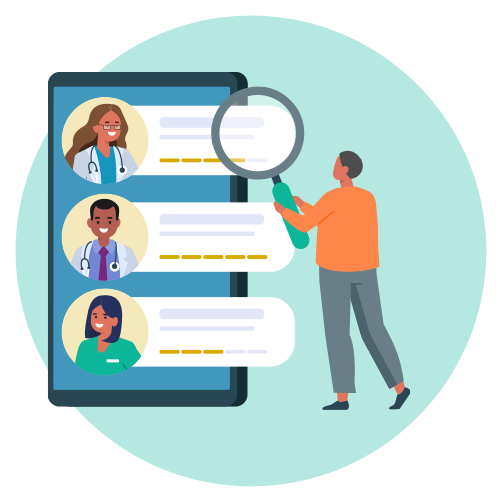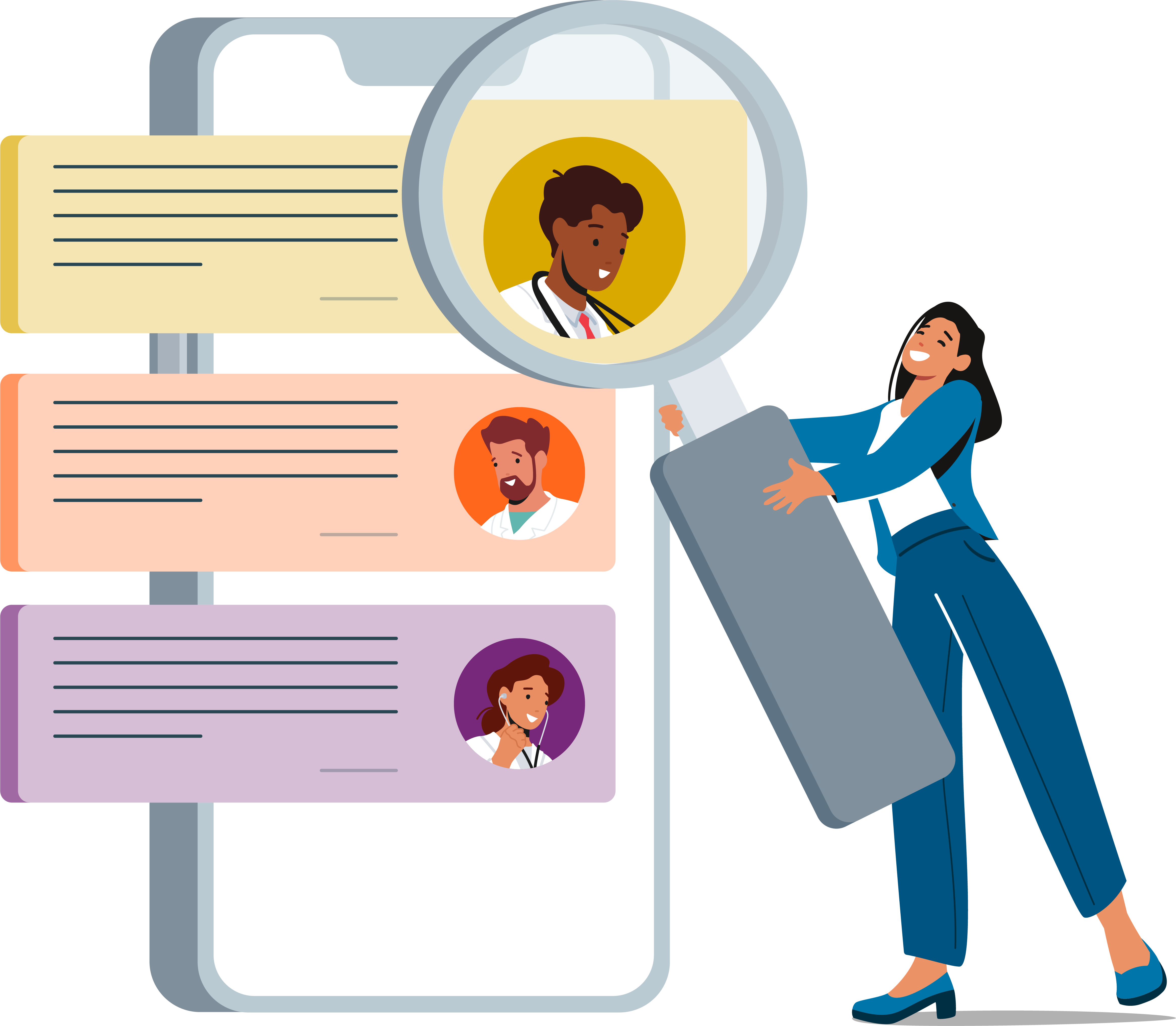
View our infographic for key data insights about how digital tools can help patients with complex diagnoses find the care they need.
Finding the right specialist can be a lengthy and difficult process for patients with complex diagnoses, negatively impacting time to treatment and, ultimately, health outcomes. However, digital tools can play a key role in connecting patients to the right specialists and the innovative treatments they need.
For many patients, finding a specialist experienced in their condition delays time to care. And patients with rare diseases often see multiple providers before securing a diagnosis.
- 27% of rare disease patients need to visit three or four different hospitals to receive a diagnosis, and over 16% visit five hospitals or more.1
- 46% of rare disease patients wait at least a year for a definitive diagnosis, and 1 in 5 wait 5+ years.1
Patients needing tailored expertise within common specialties also face delays to care.
From 2017 to 2022, the wait times for appointments in large metro markets has increased by:
- 48% for orthopedic surgery
- 26% for cardiology
- 19% for gynecology/obstetrics2
Plus, a significant number of patients switch doctors each year—and repeat the search all over again.
- 6-7% of doctors retire or move annually3
- 13% of Americans move each year4
- 22% of people change insurers each year5
When switching doctors, patients may experience:
- Delayed time to treatment or discontinuity of care, as patients must research nearby providers to find specialists with the required expertise
- Difficulties transferring complete EHRs between providers, delaying diagnosis or treatment
- Challenges getting their treatment covered by insurance, particularly for innovative therapies
Digital tools can help:
- Narrow initial search for an HCP by using a survey of symptoms to help undiagnosed patients identify the type of expertise they may need.
- Identify HCPs with the required expertise so patients can more easily connect with the most appropriate specialists in their area.*
* Advanced digital tools can also identify specialists with specific expertise (e.g. cardiologists who specialize in treating patients with heart failure).
- Deliver tailored resources that empower patients to learn more about their treatment options and enable more productive conversations with HCPs.
In summary…
Finding specialized care can be a years-long process for patients with serious, complex and rare diagnoses, worsening outcomes for patients by delaying time to treatment. Digital tools can help by matching patients to the expertise they need, as well as raising awareness of innovative therapies that may treat their condition.
Find out how Phreesia can help you reach more patients with tailored resources and support during their search for a provider.
By:
Phreesia Life Sciences in partnership with BioPharma Dive
Sources:
1 https://www.ncbi.nlm.nih.gov/pmc/articles/PMC7460109/
3 https://www.mgma.com/mgma-stats/measuring-the-toll-covid-19-took-on-the-physician-workforce
4 https://www.census.gov/library/stories/2023/04/fewer-people-moving-between-2019-and-2021.html
5 https://jamanetwork.com/journals/jamanetworkopen/fullarticle/2789399




